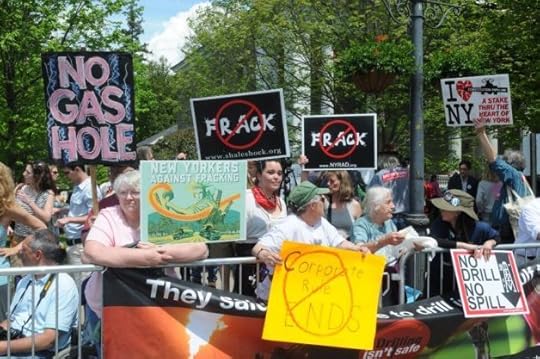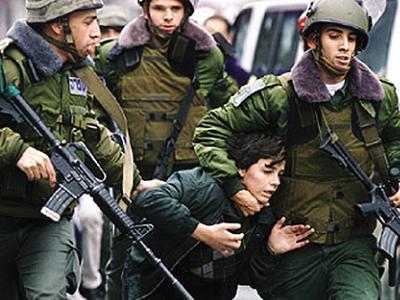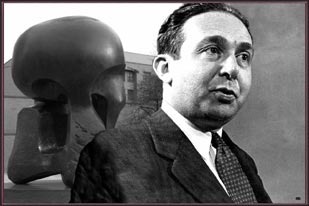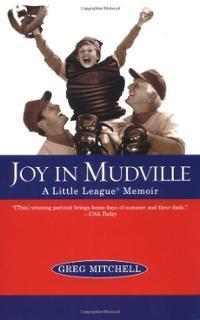Greg Mitchell's Blog, page 73
July 1, 2014
Chalabi Back, Still Chance Judy Miller Will Win Pulitzer
It was just a joke two weeks ago, but now no one is laughing: Chalabi, the man with "nine lives," really is "back" as a Iraq force, Damien Cave writes.
At first championed by the Bush administration’s neoconservatives potential leader of Iraq, Ahmad Chalabi ended up persona non grata, effectively barred from the wartime American Embassy here. Now, in an improbable twist of fate, Mr. Chalabi is being talked about as a serious candidate for prime minister. He has also been back to the embassy.
With Sunni insurgents rampaging across the country and sectarian killings on the rise, everything old seems new again in Iraq — including, apparently, Mr. Chalabi.
Published on July 01, 2014 05:38
June 30, 2014
The Fool Monty
That Mick Jagger (self-) critique of Monty Python comeback is kind of stolen by one Charlie Watts reaction shot.
Published on June 30, 2014 18:06
Bourbon Street Blues
Shooting in New Orleans captured on Earth Cam, just past 5:00 mark. Nine, including tourists, caught in crossfire.
Published on June 30, 2014 11:12
Gold Star Families on Iraq: Enough!
 I raised this question a few days ago: How sick do U.S. vets who lost buddies in Iraq now feel amid the new crisis there and the fact it's even more apparent than ever that our invasion led to wasted lives on all sides? And what about families of U.S. soldiers who died there? Do they want us to still fight there so their loved ones did not die in vain?
I raised this question a few days ago: How sick do U.S. vets who lost buddies in Iraq now feel amid the new crisis there and the fact it's even more apparent than ever that our invasion led to wasted lives on all sides? And what about families of U.S. soldiers who died there? Do they want us to still fight there so their loved ones did not die in vain?Sig Christenson, veteran war correspondent at the San Antonio Express-News--we covered him often when I was running Editor & Publisher--has vital piece now on this subject. I would have expected more of a mixed view from the Gold Star family members but they seem united in hoping that no more soldier lives lost there. No arguments for "please don't let my boy die in vain." On the contrary:
“I was relieved to hear the president say he was not going to send our troops into combat. But on the other end of it, those that are saying we should, feel free to come to my house, come talk to me and let me tell you the effects of war firsthand,” said Kim Smith, whose son Army Pvt. Robert L. Frantz, died June 17, 2003, in Iraq.
Published on June 30, 2014 08:44
More SCROTUS Than SCOTUS
 Decision just came down on the Hobby Lobby case and, natch, it's 5-4 to limit employers covering birth control in policies. Justice Ginsberg's blistering dissent. At least: "A federal judge has estimated that a third of Americans are not subject to the requirement that their employers provide coverage for contraceptives. Small employers need not offer health coverage at all; religious employers like churches are exempt; religiously affiliated groups may claim an exemption; and some insurance plans that had not previously offered the coverage are grandfathered in."
Decision just came down on the Hobby Lobby case and, natch, it's 5-4 to limit employers covering birth control in policies. Justice Ginsberg's blistering dissent. At least: "A federal judge has estimated that a third of Americans are not subject to the requirement that their employers provide coverage for contraceptives. Small employers need not offer health coverage at all; religious employers like churches are exempt; religiously affiliated groups may claim an exemption; and some insurance plans that had not previously offered the coverage are grandfathered in."Some Twitter reactions:
@SheilaBapat all 5 in Harris majority are, naturally, men. all 4 dissenting include the women justices. what a hilarious caricature SCOTUS is.
@JillFilopavic#HobbyLobby is so opposed to contraception, they invest in the companies that make it, so they can make $$$.
@ACLU Never before has#SCOTUS said employers can use their religious beliefs to deny employees a benefit they are guaranteed by law to receive.
@MMFA CNN chyron adopts right-wing "forced to pay for contraceptives" myth. No, they're not forced.
@AriMelber Ginsburg's dissent begins by emphasizing the gender discrimination in this area, not only the claims of religious discrimination.
@FelixSalmon Of course corporations are religious people. Sometimes they even come back from the dead.
@DDayen Kennedy says gov't can provide birth control directly, so no gap in coverage. Actually, gov't could provide ALL HC directly...
@ConnieSchultz Liptak: SCOTUS opened door to other corporations' claims that many laws may violate their religious liberty. http://nyti.ms/1k5Gt90
@EricBoehlert New Gallup Poll Shows Confidence In Supreme Court Hits A New Historic Low; http://cnn.it/1iNd6gJ#BushvGore
@GregMitch It's impossible to overstate the tragedy of Bush awarded 2000 election: Iraq, economy, SCOTUS, more.
Published on June 30, 2014 07:53
Big Stop-Fracking Win
 Towns in my state--that is, New York--have right to ban fracking, judge rules, as Cuomo gets ready for key ruling. I've followed closely since trip to Cooperstown where hosted by local activists/experts who were part of this fight. "The ruling may lead the oil and gas industry to abandon fracking in New York as Cuomo considers whether to lift a statewide moratorium instituted in 2008 that he inherited when he took office." Bravo. Cooperstown residents even protested at recent Obama visit to Hall of Fame.
Towns in my state--that is, New York--have right to ban fracking, judge rules, as Cuomo gets ready for key ruling. I've followed closely since trip to Cooperstown where hosted by local activists/experts who were part of this fight. "The ruling may lead the oil and gas industry to abandon fracking in New York as Cuomo considers whether to lift a statewide moratorium instituted in 2008 that he inherited when he took office." Bravo. Cooperstown residents even protested at recent Obama visit to Hall of Fame.
Published on June 30, 2014 06:40
Another Israel/Palestine Divide
 This time involving missing children--on one side, gone, maybe kidnapped; on the other gone, certainly dead, killed by soldiers. "More than two weeks after the abduction of Naftali and two other Israeli teenagers, Israel’s security crackdown has raised questions about the asymmetry of the Israeli-Palestinian conflict and the value of lives on both sides." Still, as usual with a Jodi Rudoren story in NYT. she may mean well but check out the subtle pro-Israel bias. E.g. "She stressed that Nof Ayalon, which spills slightly over the 1949 armistice line dividing Israel from the West Bank, is not a settlement."
This time involving missing children--on one side, gone, maybe kidnapped; on the other gone, certainly dead, killed by soldiers. "More than two weeks after the abduction of Naftali and two other Israeli teenagers, Israel’s security crackdown has raised questions about the asymmetry of the Israeli-Palestinian conflict and the value of lives on both sides." Still, as usual with a Jodi Rudoren story in NYT. she may mean well but check out the subtle pro-Israel bias. E.g. "She stressed that Nof Ayalon, which spills slightly over the 1949 armistice line dividing Israel from the West Bank, is not a settlement."
Published on June 30, 2014 06:02
When Szilard Tried to Halt Hiroshima and Nagasaki
 On July 3, 1945, the great atomic scientist Leo Szilard finished a letter that would become the strongest (virtually the only) real attempt at halting President Truman's march to using the atomic bomb--which was two weeks from its first test at Trinity--against Japanese cities. This partly featured in a new off-Broadway musical (yes) about Szilard, titled Atomic.
On July 3, 1945, the great atomic scientist Leo Szilard finished a letter that would become the strongest (virtually the only) real attempt at halting President Truman's march to using the atomic bomb--which was two weeks from its first test at Trinity--against Japanese cities. This partly featured in a new off-Broadway musical (yes) about Szilard, titled Atomic.Each summer I count down to the days to the tragedy marking events from 1945. I've written hundreds of articles and three books on the subject, Hiroshima in America (with Robert Jay Lifton), and more recently Atomic Cover-Up (on decades-long suppression of film shot in the atomic cities by the U.S. military) and Hollywood Bomb (how an MGM 1947 drama was censored by the military and Truman himself).
*
It’s well known that as the Truman White House made plans to use the first atomic bombs against Japan in the summer of 1945, a large group of atomic scientists, many of whom had worked on the bomb project, raised their voices, or at least their names, in protest. They were led by the great Leo Szilard. On July 3, he finished a petition to the president for his fellow scientists to consider, which called atomic bombs “a means for the ruthless annihilation of cities.” It asked the president “to rule that the United States shall not, in the present phase of the war, resort to the use of atomic bombs.”
The following day he wrote this cover letter (below). The same day, Leslie Groves, military chief of the Manhattan Project, wrote Winston Churchill’s science advisor seeking advice on how to combat Szilard and his colleagues. The bomb would be tested two weeks later and dropped over Hiroshima on August 6.
July 4, 1945
Dear xxxxxxxxxxxx,
Enclosed is the text of a petition which will be submitted to the President of the United States. As you will see, this petition is based on purely moral considerations.What happened next? Well, here's a pithy summary from author of bio of Leo Szilard. As you'll see, the petition gained from than 180 signatures, but was then delayed in getting to President Truman by Gen. Leslie Groves, military head of the Manhattan Project, until the A-bombs were ready to use. Groves also commissioned a poll of atomic scientists, which found that over 80% favored a demonstration shot only--so he squelched that, too.
It may very well be that the decision of the President whether or not to use atomic bombs in the war against Japan will largely be based on considerations of expediency. On the basis of expediency, many arguments could be put forward both for and against our use of atomic bombs against Japan.
Such arguments could be considered only within the framework of a thorough analysis of the situation which will face the United States after this war and it was felt that no useful purpose would be served by considering arguments of expediency in a short petition.
However small the chance might be that our petition may influence the course of events, I personally feel that it would be a matter of importance if a large number of scientists who have worked in this field went clearly and unmistakably on record as to their opposition on moral grounds to the use of these bombs in the present phase of the war.
Many of us are inclined to say that individual Germans share the guilt for the acts which Germany committed during this war because they did not raise their voices in protest against these acts. Their defense that their protest would have been of no avail hardly seems acceptable even though these Germans could not have protests without running risks to life and liberty. We are in a position to raise our voices without incurring any such risks even though we might incur the displeasure of some of those who are at present in charge of controlling the work on “atomic power”.
The fact that the people of the people of the United States are unaware of the choice which faces us increases our responsibility in this matter since those who have worked on “atomic power” represent a sample of the population and they alone are in a position to form an opinion and declare their stand.
Anyone who might wish to go on record by signing the petition ought to have an opportunity to do so and, therefore, it would be appreciated if you could give every member of your group an opportunity for signing.
Leo Szilard
It’s well known that as the Truman White House made plans to use the first atomic bombs against Japan in the summer of 1945, a large group of atomic scientists, many of whom had worked on the bomb project, raised their voices, or at least their names, in protest. They were led by the great Leo Szilard. On July 3, he finished a petition to the president for his fellow scientists to consider, which called atomic bombs “a means for the ruthless annihilation of cities.” It asked the president “to rule that the United States shall not, in the present phase of the war, resort to the use of atomic bombs.”
The following day he wrote this cover letter (below). The same day, Leslie Groves, military chief of the Manhattan Project, wrote Winston Churchill’s science advisor seeking advice on how to combat Szilard and his colleagues. The bomb would be tested two weeks later and dropped over Hiroshima on August 6. For more see my recent book Atomic Coverup and my book with Robert Jay Lifton, Hiroshima in America.
July 4, 1945
Dear xxxxxxxxxxxx,
Enclosed is the text of a petition which will be submitted to the President of the United States. As you will see, this petition is based on purely moral considerations.
It may very well be that the decision of the President whether or not to use atomic bombs in the war against Japan will largely be based on considerations of expediency. On the basis of expediency, many arguments could be put forward both for and against our use of atomic bombs against Japan. Such arguments could be considered only within the framework of a thorough analysis of the situation which will face the United States after this war and it was felt that no useful purpose would be served by considering arguments of expediency in a short petition.
However small the chance might be that our petition may influence the course of events, I personally feel that it would be a matter of importance if a large number of scientists who have worked in this field went clearly and unmistakably on record as to their opposition on moral grounds to the use of these bombs in the present phase of the war.
Many of us are inclined to say that individual Germans share the guilt for the acts which Germany committed during this war because they did not raise their voices in protest against these acts. Their defense that their protest would have been of no avail hardly seems acceptable even though these Germans could not have protests without running risks to life and liberty. We are in a position to raise our voices without incurring any such risks even though we might incur the displeasure of some of those who are at present in charge of controlling the work on “atomic power”.
The fact that the people of the people of the United States are unaware of the choice which faces us increases our responsibility in this matter since those who have worked on “atomic power” represent a sample of the population and they alone are in a position to form an opinion and declare their stand.
Anyone who might wish to go on record by signing the petition ought to have an opportunity to do so and, therefore, it would be appreciated if you could give every member of your group an opportunity for signing.
Leo Szilard
- See more at: http://www.thenation.com/blog/168725/... well known that as the Truman White House made plans to use the first atomic bombs against Japan in the summer of 1945, a large group of atomic scientists, many of whom had worked on the bomb project, raised their voices, or at least their names, in protest. They were led by the great Leo Szilard. On July 3, he finished a petition to the president for his fellow scientists to consider, which called atomic bombs “a means for the ruthless annihilation of cities.” It asked the president “to rule that the United States shall not, in the present phase of the war, resort to the use of atomic bombs.”
The following day he wrote this cover letter (below). The same day, Leslie Groves, military chief of the Manhattan Project, wrote Winston Churchill’s science advisor seeking advice on how to combat Szilard and his colleagues. The bomb would be tested two weeks later and dropped over Hiroshima on August 6. For more see my recent book Atomic Coverup and my book with Robert Jay Lifton, Hiroshima in America.
July 4, 1945
Dear xxxxxxxxxxxx,
Enclosed is the text of a petition which will be submitted to the President of the United States. As you will see, this petition is based on purely moral considerations.
It may very well be that the decision of the President whether or not to use atomic bombs in the war against Japan will largely be based on considerations of expediency. On the basis of expediency, many arguments could be put forward both for and against our use of atomic bombs against Japan. Such arguments could be considered only within the framework of a thorough analysis of the situation which will face the United States after this war and it was felt that no useful purpose would be served by considering arguments of expediency in a short petition.
However small the chance might be that our petition may influence the course of events, I personally feel that it would be a matter of importance if a large number of scientists who have worked in this field went clearly and unmistakably on record as to their opposition on moral grounds to the use of these bombs in the present phase of the war.
Many of us are inclined to say that individual Germans share the guilt for the acts which Germany committed during this war because they did not raise their voices in protest against these acts. Their defense that their protest would have been of no avail hardly seems acceptable even though these Germans could not have protests without running risks to life and liberty. We are in a position to raise our voices without incurring any such risks even though we might incur the displeasure of some of those who are at present in charge of controlling the work on “atomic power”.
The fact that the people of the people of the United States are unaware of the choice which faces us increases our responsibility in this matter since those who have worked on “atomic power” represent a sample of the population and they alone are in a position to form an opinion and declare their stand.
Anyone who might wish to go on record by signing the petition ought to have an opportunity to do so and, therefore, it would be appreciated if you could give every member of your group an opportunity for signing.
Leo Szilard
- See more at: http://www.thenation.com/blog/168725/... well known that as the Truman White House made plans to use the first atomic bombs against Japan in the summer of 1945, a large group of atomic scientists, many of whom had worked on the bomb project, raised their voices, or at least their names, in protest. They were led by the great Leo Szilard. On July 3, he finished a petition to the president for his fellow scientists to consider, which called atomic bombs “a means for the ruthless annihilation of cities.” It asked the president “to rule that the United States shall not, in the present phase of the war, resort to the use of atomic bombs.”
The following day he wrote this cover letter (below). The same day, Leslie Groves, military chief of the Manhattan Project, wrote Winston Churchill’s science advisor seeking advice on how to combat Szilard and his colleagues. The bomb would be tested two weeks later and dropped over Hiroshima on August 6. For more see my recent book Atomic Coverup and my book with Robert Jay Lifton, Hiroshima in America.
July 4, 1945
Dear xxxxxxxxxxxx,
Enclosed is the text of a petition which will be submitted to the President of the United States. As you will see, this petition is based on purely moral considerations.
It may very well be that the decision of the President whether or not to use atomic bombs in the war against Japan will largely be based on considerations of expediency. On the basis of expediency, many arguments could be put forward both for and against our use of atomic bombs against Japan. Such arguments could be considered only within the framework of a thorough analysis of the situation which will face the United States after this war and it was felt that no useful purpose would be served by considering arguments of expediency in a short petition.
However small the chance might be that our petition may influence the course of events, I personally feel that it would be a matter of importance if a large number of scientists who have worked in this field went clearly and unmistakably on record as to their opposition on moral grounds to the use of these bombs in the present phase of the war.
Many of us are inclined to say that individual Germans share the guilt for the acts which Germany committed during this war because they did not raise their voices in protest against these acts. Their defense that their protest would have been of no avail hardly seems acceptable even though these Germans could not have protests without running risks to life and liberty. We are in a position to raise our voices without incurring any such risks even though we might incur the displeasure of some of those who are at present in charge of controlling the work on “atomic power”.
The fact that the people of the people of the United States are unaware of the choice which faces us increases our responsibility in this matter since those who have worked on “atomic power” represent a sample of the population and they alone are in a position to form an opinion and declare their stand.
Anyone who might wish to go on record by signing the petition ought to have an opportunity to do so and, therefore, it would be appreciated if you could give every member of your group an opportunity for signing.
- See more at: http://www.thenation.com/blog/168725/... well known that as the Truman White House made plans to use the first atomic bombs against Japan in the summer of 1945, a large group of atomic scientists, many of whom had worked on the bomb project, raised their voices, or at least their names, in protest. They were led by the great Leo Szilard. On July 3, he finished a petition to the president for his fellow scientists to consider, which called atomic bombs “a means for the ruthless annihilation of cities.” It asked the president “to rule that the United States shall not, in the present phase of the war, resort to the use of atomic bombs.”
The following day he wrote this cover letter (below). The same day, Leslie Groves, military chief of the Manhattan Project, wrote Winston Churchill’s science advisor seeking advice on how to combat Szilard and his colleagues. The bomb would be tested two weeks later and dropped over Hiroshima on August 6. For more see my recent book Atomic Coverup and my book with Robert Jay Lifton, Hiroshima in America.
July 4, 1945
Dear xxxxxxxxxxxx,
Enclosed is the text of a petition which will be submitted to the President of the United States. As you will see, this petition is based on purely moral considerations.
It may very well be that the decision of the President whether or not to use atomic bombs in the war against Japan will largely be based on considerations of expediency. On the basis of expediency, many arguments could be put forward both for and against our use of atomic bombs against Japan. Such arguments could be considered only within the framework of a thorough analysis of the situation which will face the United States after this war and it was felt that no useful purpose would be served by considering arguments of expediency in a short petition.
However small the chance might be that our petition may influence the course of events, I personally feel that it would be a matter of importance if a large number of scientists who have worked in this field went clearly and unmistakably on record as to their opposition on moral grounds to the use of these bombs in the present phase of the war.
Many of us are inclined to say that individual Germans share the guilt for the acts which Germany committed during this war because they did not raise their voices in protest against these acts. Their defense that their protest would have been of no avail hardly seems acceptable even though these Germans could not have protests without running risks to life and liberty. We are in a position to raise our voices without incurring any such risks even though we might incur the displeasure of some of those who are at present in charge of controlling the work on “atomic power”.
The fact that the people of the people of the United States are unaware of the choice which faces us increases our responsibility in this matter since those who have worked on “atomic power” represent a sample of the population and they alone are in a position to form an opinion and declare their stand.
Anyone who might wish to go on record by signing the petition ought to have an opportunity to do so and, therefore, it would be appreciated if you could give every member of your group an opportunity for signing.
- See more at: http://www.thenation.com/blog/168725/...
Published on June 30, 2014 06:00
June 29, 2014
Blackwater Ran Deep in Iraq
Big James Risen (still out of prison) scoop in NYT on Blackwater threatening to kill prober in Iraq.
Mr. Carroll said “that he could kill me at that very moment and no one could or would do anything about it as we were in Iraq,” Mr. Richter wrote in a memo to senior State Department officials in Washington. He noted that Mr. Carroll had formerly served with Navy SEAL Team 6, an elite unit.
“Mr. Carroll’s statement was made in a low, even tone of voice, his head was slightly lowered; his eyes were fixed on mine,” Mr. Richter stated in his memo. “I took Mr. Carroll’s threat seriously. We were in a combat zone where things can happen quite unexpectedly, especially when issues involve potentially negative impacts on a lucrative security contract.”
He added that he was especially alarmed because Mr. Carroll was Blackwater’s leader in Iraq, and “organizations take on the attitudes and mannerisms of their leader.”
Published on June 29, 2014 23:54
Little League 'Leftovers'
 Was surprised tonight to see Memorial Park in town where I live, Nyack, N.Y. (just up the Hudson from NYC) show up in the debut of new HBO series "The Leftovers." I thought I caught a glimpse of it early on when the police chief drives by but then it's the setting later for the climax--when the town's marking of the third anniversary of when so many mysteriously disappeared from the earth turned bloody. The baseball field you see is where so much of my memoir "Joy in Mudville" was set--with games when I was coaching my son in Little League. Good times. Almost bloodshed then, as well!
Was surprised tonight to see Memorial Park in town where I live, Nyack, N.Y. (just up the Hudson from NYC) show up in the debut of new HBO series "The Leftovers." I thought I caught a glimpse of it early on when the police chief drives by but then it's the setting later for the climax--when the town's marking of the third anniversary of when so many mysteriously disappeared from the earth turned bloody. The baseball field you see is where so much of my memoir "Joy in Mudville" was set--with games when I was coaching my son in Little League. Good times. Almost bloodshed then, as well!
Published on June 29, 2014 20:23



